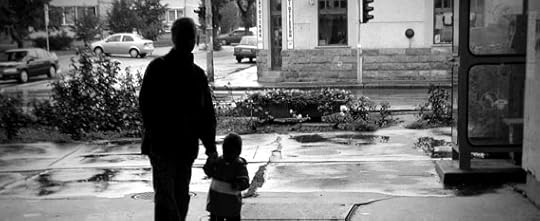Randy Alcorn's Blog, page 159
September 28, 2015
Abortion Isn’t About Women’s Health

It’s common to talk to women physically or psychologically damaged by abortions, who say, “I had no idea this could happen; no one told me about the risks.” Unfortunately, the large body of evidence indicating significant abortion risks has been suppressed and ignored. This suppression is made possible by prochoice advocates who zealously oppose any requirements for abortion clinics to provide information. The “immunity to stating the facts” enjoyed by abortion clinics increases their profits, but only at the expense of women who are not allowed to make an informed choice.
My thanks to Linda L. Kruschke for writing this powerful article and sharing a personal perspective on this subject:
I’ve been avoiding writing this blog post for about two weeks now, but I can’t avoid it any more. The thing that finally pushed me to write was this article I read on the Eternal Perspective Ministries (EPM) website while I was eating my lunch. It is about the Planned Parenthood (PP) protest in Portland, Oregon on August 22. There were 300 such peaceful protests across the nation, but this one happened to be where I live and less than an hour away from the headquarters of EPM.
I loved one of the pictures in this article because in addition to people holding a sign that says “Planned Parenthood Kills Babies” there were others holding a sign that says “Planned Parenthood Deceives Women.” Although I am saddened by the culture of death and the many murdered children at the hands of PP, my heart is with the many women who have had abortions and lived to regret that decision. Many of those women, like me, were deceived by PP and are also victims.
The pro-choice voice claims that the right of a woman to have an abortion is a women’s health issue and that PP is about women’s health. These claims couldn’t be further from the truth. Pregnancy is not a disease that needs to be treated or cured. It is not healthy for a woman to have an abortion. In fact, having an abortion dramatically increases a woman’s risk of major depression and suicidal tendencies, and it also increases the risk of breast cancer and future miscarriage. (EPM note: see the information following Linda’s article for more on these increased risks.)
But it was my experience that PP didn’t disclose any of those risks. I didn’t find out about them until after I’d suffered with seven years of major clinical depression (following many years of low-grade depression), been suicidal, and had a miscarriage. So far I haven’t also gotten breast cancer, but with my family history of this disease, I certainly did not need to increase my risk.
The “health care providers” at PP were not concerned with my health; they were concerned only with getting my money. They weren’t concerned with who the father was or the fact that he had been an older man who raped a teenage girl; they didn’t even ask. They didn’t provide any pre- or post-abortion counseling, they didn’t advise me of the health risks of having an abortion, and they didn’t even schedule a follow-up visit. What doctor doesn’t schedule a follow-up visit after an invasive medical procedure?
I left the PP clinic that day, headed off to a Future Business Leaders of America camp, and bled so much that I thought I was going to die. (In fact, when I bled that much after my miscarriage years later, the emergency room rushed me back to an exam room without even checking in first—that’s how serious that kind of bleeding can be.) But PP didn’t warn me about this possibility or tell me what to do if it did happen. I was a scared 17-year-old with no one looking out for my health—PP certainly wasn’t.
Tell me you think a woman has a right to choose to kill her own baby—if you think that’s a defensible position—but don’t tell me that right is a women’s health issue. It quite simply is not.
If you want to champion women’s health, then help women find the spiritual and emotional health to deal honestly with a pregnancy they don’t want. Help them understand that whatever the circumstances that led to their pregnancy, God loves them and their child. There are options, including adoption, which are far healthier for them—and definitely healthier for their baby. What finally got me healthy after the trauma of being raped and having an abortion was the love of Jesus. I only wish someone had helped me find that love before it was too late for my child.
Here’s more information from my book Why ProLife? about some of the health risks for women following abortions:
Increased Mental Health Complications
Dr. Patricia Coleman, professor of Human Development and Family Studies at Bowling Green State University, analyzed outcomes of twenty-two scholarly research papers on women, mental health, and abortion. The research involved well over 877,000 women. She states, “81 percent of females who had an abortion were found to be at an increased risk for mental health problems, including depression, alcohol abuse, and suicidal behaviors.”[i]
Very similar conclusions to Coleman’s were reached independently in an Australian analysis of abortion and mental health data.[ii]
Increased Risk of Cancer
Women with one abortion double their risk of cervical cancer, compared to non-abortive women, while women with two or more abortions multiply their risk by nearly five times. Similar elevated risks of ovarian and liver cancer have also been linked to single and multiple abortions.[iii]
After extensive investigation, Dr. Joel Brind, a cancer researcher and professor of endocrinology, concluded, “The single most avoidable risk factor for breast cancer is induced abortion.”[iv] A woman who has an abortion increases her risk of breast cancer by a minimum of 50 percent and as much as 300 percent.[v]
Increased Risk of Future Miscarriage
Many studies have demonstrated a statistically significant increase in miscarriage, premature births or low birth weight risk in women with prior induced abortions.[vi] “Low birth weight and premature birth are the most important risk factors for infant mortality or later disabilities as well as for lower cognitive abilities and greater behavioral problems.”[vii]
Sources
[i] Priscilla Coleman, “Abortion and Mental Health: Quantitative Synthesis and Analysis of Research Published 1995–2009,” British Journal of Psychiatry 199 (September 2011): 180–86, http://bjp.rcpsych.org/content/199/3/....
[ii] Joseph A. D’Agostino, “Abortion Causes Massive Mental Health Problems for Women,” Human Events, January 30, 2006, http://www.humanevents.com/article.php?id=11966&keywords=abortion+ectopic+pregnancy.
[iii] F. Parazzini et al., “Reproductive Factors and the Risk of Invasive and Intraepithelial Cervical Neoplasia,” British Journal of Cancer 59 (1989):805–9; H. L. Stewart et al., “Epidemiology of Cancers of the Uterine Cervix and Corpus, Breast and Ovary in Israel and New York City,” Journal of the National Cancer Institute 37, no. 1:1–96; I. Fujimoto et al., “Epidemiologic Study of Carcinoma in Situ of the Cervix,” Journal of Reproductive Medicine 30, no. 7 ( July 1985): 535; C. LaVecchia et al., “Reproductive Factors and the Risk of Hepatocellular Carcinoma in Women,” International Journal of Cancer 52 (1992): 351.
[iv] Joel Brind, “Comprehensive Review and Meta-Analysis of the Abortion/Breast Cancer Link,” http://www.ncbi.nlm.nih.gov/pmc/articles/PMC1060338/?tool=pmcentrez.
[v] L. A. Brinton et al., “Reproductive Factors in the Aetiology of Breast Cancer,” British Journal of Cancer 47 (1983): 757–62.
[vi] Laura Blue, “Study Links Abortion and Premies,” Time, December 18, 2007, citing the Journal of Epidemiology and Community Health, http://www.time.com/time/health/article/0,8599,1695927,00.html
[vii] Brent Rooney and Byron C. Calhoun, MD, “Induced Abortion and Risk of Later Premature Births,” Journal of American Physicians and Surgeons 8, no. 2 (Summer 2003), http://www.jpands.org/vol8no2/rooney.pdf.
September 25, 2015
What Does God Think about Animals and Taking Care of Them?
 If you’ve been a reader of my blog, you probably know that Nanci and I love animals, dogs in particular. We especially enjoy our Golden Retriever, Maggie Grace, who joined us after the loss of our beloved Dalmatian Moses.
If you’ve been a reader of my blog, you probably know that Nanci and I love animals, dogs in particular. We especially enjoy our Golden Retriever, Maggie Grace, who joined us after the loss of our beloved Dalmatian Moses.
God is so gracious to give us animals. In Genesis 1 and 2, one of the first responsibilities given to the first man and woman was to care for the animals. It’s true that some people go overboard with their pets, spending too much money on them compared to human needs in the world. But I also believe God has used pets to minister to and bring great comfort and companionship to many people.
Perhaps because many environmental and animal-rights activists scorn the Bible and Christian beliefs, I believe Christians have often overreacted and ignored our stewardship job description when it comes to animals, as if it were somehow incompatible with the gospel. But it was God, not an animal rights activist, who entrusted them to us. Just as John 3:16 is inspired by God, so is Proverbs 12:10: “A righteous man cares for the needs of his animal.”
In this video interview with Dan Darling with ERLC (Ethics & Religious Liberty Commission of the Southern Baptist Convention), I discuss what Scripture says about animals and our responsibility to care for them.
September 23, 2015
David O’Brien, Free at Last in Jesus’ Presence
 My treasured and brilliant friend David O’Brien, founder of Tryad Ministries, a discipleship ministry to the disabled community, went home to be with Jesus several months ago at the age of 81. David lived with a severe form of cerebral palsy since birth, yet he demonstrated joy that transcended his body’s bondage.
My treasured and brilliant friend David O’Brien, founder of Tryad Ministries, a discipleship ministry to the disabled community, went home to be with Jesus several months ago at the age of 81. David lived with a severe form of cerebral palsy since birth, yet he demonstrated joy that transcended his body’s bondage.
I first got to know David in the seventies when I was teaching at Ecola Hall Bible School at Cannon Beach Conference Center. David told me that God used his cerebral palsy to draw him to depend on Christ. Was he better off with his disability? He was convinced he was. His eighty one years of difficulty and sometimes considerable suffering were no cosmic accident or satanic victory, but a severe mercy from the good hand of God.
I haven’t met many people more convinced of God’s goodness than David O’Brien. He experienced a lifetime of serious afflictions that many consider senseless evil, but he saw them as tools in the hands of a good God.
I share in my book If God Is Good (and also hand in Hand) that David asked me to speak at a conference for the disabled at Cannon Beach, and then requested that I be his interpreter/reader after he laboriously spoke each line he’d written. After speaking, he would pause so I could read aloud every line to be sure he was understood.
Before continuing this story, I ask you to watch this 55 second video of David speaking to give you an idea of the man and his disability and his wonderful heart and presence:
That day at the handicapped conference, David’s message began (I have the complete transcript), “Is it possible that God has his hand in shaping the events that could lead to a handicap or suffering?” Following David’s notes, I read from Genesis 32:24–28, the story of Jacob wrestling with a man identified as God in human flesh. David observed, “We see Jacob’s thigh touched by the Hand of God. Thereafter, his hip was out of joint. This handicap was caused directly by God’s Hand.” He continued, “I believe that the result of God’s blessings [David called Jacob’s handicap a blessing] were preservation of Jacob’s life and a lifelong dependency upon God’s ability to carry out his plan.”
David spoke of God’s affirmation in Exodus 4:11 that he creates people deaf, mute, and blind, and doesn’t merely permit those conditions. Then he said, “God knows the spirit and will in each person, and he shapes the body to mold that will to his purpose. A gardener uses gradual tension to shape a tree into a beautiful arch. A special body is the gradual tension that shapes spirit and will to glorify God.”
David then turned to John 9:1–3. The disciples wanted to attribute a man’s blindness to human sin. Jesus corrected them: “Neither this man nor his parents sinned.” Then Jesus stated the disability’s purpose: “This happened so that the work of God might be displayed in his life.” While God would receive great glory in the man’s healing, surely he had a deliberate, divine purpose within the man’s life, long before his healing. I think David O’Brien would agree that Satan, genetics, and many other things can serve as immediate or secondary causes, but God is still the ultimate and primary cause.
David commented, “If Christ had to suffer to be made complete, how can we expect not to have some form of suffering?” Then he said something unforgettable: “God tailors a package of suffering best suited for each of his own.”
David spoke the following, in words difficult to understand, yet prophetically clear: “Dare I question God’s wisdom in making me the way I am?”
My dear brother lived his earthly life trapped in a body that groaned for redemption. I’m delighted to say that his cerebral palsy disappeared the moment he left this world for the present Heaven. But the biggest treat will be at his resurrection, when he will have a new body, forever free of disease. I picture David in that new world, never having others think he was stupid and never having to repeat himself because others don’t understand him. I see him running through fields on the New Earth. I look forward to running beside David . . . and, I think, behind him.
Farewell, David, my friend, I will see you soon. Thanks for the amazing life you lived here in the old world, by the grace and power of Jesus. I look forward to exploring the New World with you, to the glory of our King!
Your brother always,
Randy
September 21, 2015
Why Churches Should Study Systematic Theology

I was one of the two original pastors of a church started by forty people meeting in a basement in 1977. I served in that role for just over thirteen years before I had to resign due to abortion clinic lawsuits related to my peaceful nonviolent disobedience on behalf of unborn children. Nanci and I are still part of that same fellowship, Good Shepherd Community Church, nearly forty years later.
Our church has been through some very hard times over the years, but with all its (our) imperfections, we love the body and bride of Christ. And if you’re disillusioned with church, as many people are, we encourage you to either get more deeply involved in your church (e.g. in small group Bible studies) or if you need to leave, do so, but don’t give up until you find a Christ-centered, Bible-teaching, and grace-filled church—which will still be very imperfect, of course, especially once you arrive. :)
Probably ten years ago I was asked what I would do differently if I were a pastor today. The answer was easy, because I’ve thought about it often based on what I’ve seen in the 25 years since I was a pastor. What I said was this:
If I had it to do over again I would teach the church not only the Bible, but also systematic theology. I would use some of the great resources we have today (e.g. Wayne Grudem’s Bible Doctrine), have an ongoing weekly class teaching it chapter by chapter, and encourage every person in the church to plug into that class until they complete the study. This could also be done in small groups. Once people complete the study, whether it takes one, two or three years, I would encourage them to go through it again, because the second and third time great truths would sink in and be reinforced.
The reason I said this is because over nearly four decades in my church (a church that has always taught and emphasized God’s Word), I’ve seen a noticeable, even startling, reduction in the average person’s grasp of biblical truth. It’s possible for someone to hear Bible-based sermons while at the same time they’re adopting a worldview that is less and less biblical. This happens because most church people spend very little time studying God’s truth during the week. Compare the time spent reading Scripture and great books that teach biblical truth versus the amount of time spent watching television and reading social media that exemplify not only a non-Christian worldview but often an anti-Christian worldview. What chance does one 30 to 40 minute sermon a week have, no matter how biblical, when it must fight off and correct 30 to 40 hours of worldview that’s contrary to Scripture and the Gospel of God’s grace?
My biggest hope with the teaching of systematic theology is that it will give people a truly Christian worldview and then inspire and motivate them to read books which further develop and cultivate that biblical worldview. If people in our churches gave up ten hours of television, talk radio, sports radio, political programming or shopping or you-name-it per week and spent those ten extra hours reading or listening to audio of God’s Word and great Christ-exalting books and videos, it would make a phenomenal difference.
If our young people were taught systematic theology (age-appropriate of course, which can be done from childhood), which is the same as a Christian worldview, before going off to college, they would be equipped to answer the questions and challenges to their faith they’ll see and hear every day. They would at least have a chance. The way it is now they go off to college with little more than a few isolated stories they heard in Sunday school and youth group and in their home. And this meagre knowledge can’t begin to stand up against the onslaught of anti-God, anti-Bible, and anti-church doctrine that will overwhelm them (sometimes, tragically, even at so-called Christian colleges).
When someone asked me in an email, “What’s the value of systematic theology?” here was my answer.
Pastor Kevin DeYoung recently wrote a wonderful answer to the question “Why should we study systematic theology?” I would encourage every Christ-follower to read this, and to take to heart the vital points Kevin makes.
September 18, 2015
John Piper on the Best of Times, the Worst of Times

John Piper recently spoke about how we as Christians should respond to the times in which we find ourselves. I especially appreciated his four take aways about how to live in a day like ours. Rather than despairing about the difficulties, or remaining blissfully ignorant of them, we’re to trust that God is sovereignly at work in both the good and bad, and to seek to be salt and light in the places He’s put us.
As God raised up Esther for just such a time as hers (Esther 4:14), I’m convinced He’s raised us up for this time, to be a witness for Christ and to bring the Good News of great joy to those around the world.
This Is the Best of Times, And the Worst of Times
Perhaps this is true at every point in the history of a God-ruled, sin-pervaded world. It was true in 1859, and it is true today.
Charles Dickens wrote The Tale of Two Cities in 1859. It begins,
It was the best of times, it was the worst of times, it was the age of wisdom, it was the age of foolishness, it was the epoch of belief, it was the epoch of incredulity, it was the season of Light, it was the season of Darkness, it was the spring of hope, it was the winter of despair, we had everything before us, we had nothing before us, we were all going direct to Heaven, we were all going direct the other way — in short, the period was so far like the present period, that some of its noisiest authorities insisted on its being received, for good or for evil, in the superlative degree of comparison only.
He was referring to 1775, the time of the French Revolution. But his point was that period was like the present period in 1859. In the mid-nineteenth century, “it was the best of times and the worst of times.”
In 1859 Charles Spurgeon was 25 years old, George Müller was 54, Hudson Taylor was 27. And Charles Darwin was 50 years old, John Stuart Mill was 53, and Friedrich Nietzsche was 15.
September 16, 2015
An Appeal to Men to Stand up for Women and Care for and Defend Their Children

The tenth video exposé about Planned Parenthood from The Center for Bioethical Reform was released yesterday. You can view it, and more related articles, on the ERLC site.
The history of abortion in America should bring more shame to men than to anyone. No pregnancy happens without a man. Men should take the responsibility for their own purity and to protect that of women. When they fail to do this, they should be the first to accept full responsibility for the consequences of their actions, including the conception of a child.
As George Gilder argues in Men and Marriage, [i] when men exercise deep loyalties to women and children, when we take responsibility to protect and defend them, we are at our best; when we violate those loyalties, we are at our worst. We become abusers on the one hand, or passive cowards on the other. We place ourselves under the rightful scorn of women and under the judgment of God.
When I spoke on this subject at my church, a man in his sixties told me of a girl he got pregnant thirty-nine years ago. She gave him the choice of what to do, and he chose an abortion. He said it has haunted him since. He thinks about the woman he failed and the son or daughter he lost and wonders about the grandchildren he’d now be holding. He said to me, “Tell people about the consequences. Warn our young men—tell them God will hold them accountable for what they do with their children.” Then he broke down in tears and said, “I don’t want our young men to do what I did thirty-nine years ago.”
One of our home Bible study leaders came to me, tears in his eyes. He told me of an abortion he paid for years ago and the devastating impact it had on his life. A quarter of a million babies are aborted each year by women who describe themselves as “evangelical” or “born again." [ii] Most of these women no doubt have some church affiliation. In many cases the father of the child attends the same church. It is not only a moral crisis, but a matter of great shame that Christian men have been so weak that they not only commit sexual immorality, but allow a child to be killed to cover up their sin and make their lives easier (until their conscience takes revenge).
For the sake of women and children—and for our own sakes—it is time for men to stand up and make whatever sacrifices are necessary to care for children they have fathered. If this means begging the forgiveness of women, or standing in front of church leaders or a congregation and confessing their sin, so be it. If this were done more often, more young men in the church would be encouraged to pursue purity and discouraged from ever letting a child die for their sins.
Abortion isn’t a women’s issue. It’s a human issue, and its effects are devastating to women and men alike. But it’s high time for men to take personal responsibility, stand up for women and children, and exercise the kind of leadership God expects of us.
Free book offer from Eternal Perspective Ministries
With the issue of abortion once again at the forefront of our culture, EPM wants to equip prolifers to be able to provide a solid, compassionate case for defending both unborn children and their mothers. We are offering readers one FREE copy of Randy Alcorn’s book Why ProLife? (retail value $6.95) and complimentary shipping* when you use the code PROLIFE.
*Complimentary shipping offer applies only to free book. Other products added to the order will still have applicable shipping charges. Book offer only available for continental U.S. orders. Offer expires Thursday, September 17 at 11:59 p.m. PT.
Sources
[i] George Gilder, Men and Marriage (Gretna, La.: Pelican, 1992).
[ii] Family Planning Perspectives, July–August 1996, 12.
September 14, 2015
Some Powerful Insights from John Rhys-Davies
 Actor John Rhys-Davies is best known for his portrayal of Indiana Jones’s Egyptian friend Salla in Raiders of the Lost Ark and its sequels, and Gimli in The Lord of the Rings. I love both of those characters!
Actor John Rhys-Davies is best known for his portrayal of Indiana Jones’s Egyptian friend Salla in Raiders of the Lost Ark and its sequels, and Gimli in The Lord of the Rings. I love both of those characters!
He gave an interview at this site. Listen to his great voice at about fifteen minutes into the program. There’s some bad language, but also some powerful and insightful points, perhaps all the more remarkable because they are not made by people who could be mistaken as fundamentalist Christians.
Here are some quotations in the interview from Rhys-Davies about the end of Christian civilization, just before they go off on the subject of cars:
“There is an extraordinary silence in the West. Christianity in the Middle East and in Africa is being wiped out — I mean not just ideologically but physically, and people are being enslaved and killed because they are Christians. And your country [the USA] and my country [the United Kingdom] are doing nothing about it. . . .”
“This is a unique age. We don’t want to be judgmental. Every other age that’s come before us has believed exactly the opposite. I mean, T. S. Eliot referred to ‘the common pursuit of true judgment.’ Yes, that’s what it’s about. Getting our judgments right, getting them accurate. . . .”
“It’s an age where politicians don’t actually say what they believe…. They are afraid of being judged as being partisan. Heaven forbid we should criticize people who, after all, share a different ‘value system.’ But it’s all … equally relative. We’re all the same. And God and the devil, they’re the same, aren’t they, really? Right and wrong? It’s really just two faces of the same coin.’ We have lost our moral compass completely, and unless we find it, we’re going to lose our civilization. I think we’re going to lose Western European Christian civilization anyway.”
Photo credit: Gage Skidmore
September 11, 2015
Dependence

I’m an insulin-dependent diabetic. Without a doubt, the greatest lesson I’ve learned through it is to depend not on myself, but God. (I believe it’s no accident that it appeared the same month my first book came out in 1985—so that I wouldn’t credit myself for that which God has gifted me in and graciously empowers me for.)
Every day I must take insulin injections (for many years manually, more recently with a pump) and blood tests. Each time I do, I’m reminded of my own frailty and inadequacy. In an immediate sense I’m dependent on my insulin to live. In an ultimate sense, I’m dependent on God to live. As Jesus said, “I am the vine; you are the branches. Whoever abides in me and I in him, he it is that bears much fruit, for apart from me you can do nothing” (John 15:5).
Usually I live a normal life, but sometimes I’ve lain helpless, stiff as a board, not in my right mind, needing my wife to get sugar in my mouth. My once-strong body grows weak. Low blood sugar clouds my judgment and leaves me with a memory of having said stupid things, like a drunk.
This humbles me. But I can honestly say I’m grateful for it; yes, I even delight in it because my weakness draws me to greater dependence upon Christ.
Now, writing isn’t a disease (some might argue that point), but like my disease, it shows my weaknesses. In my writing I hit dead ends, wander in cul-de-sacs, waste days headed the wrong direction and occasionally nearly drive off the cliff. I’m never more keenly aware of my dependence on the Lord than when I’m writing a book.
Charles Hummel wrote that “the root of all sin is self-sufficiency—independence from God.” God has taught me that whether we write or build or draw or fix things or make a home for our families, He wants us to yield our gifts to Him, and depend on Him for the next step, even the next breath. I don't always succeed, but that's what I seek to do in my writing.
When Paul asked God to remove his disability, which he called a “thorn in the flesh,” instead of healing Paul (which might have resulted in him becoming self-sufficient) God said to him, “My grace is sufficient for you, for my power is made perfect in weakness." So Paul wrote, "Therefore I will boast all the more gladly of my weaknesses, so that the power of Christ may rest upon me” (2 Corinthians 12:9).
I’ve often asked God to give me strength, wisdom and perseverance as I write, and to just give me the right words. I do my part, as the junior partner, while God does his much greater part, as the senior partner, that in turn allows me to do mine: As Paul said, “I strenuously contend with all the energy Christ so powerfully works in me” (Colossians 1:29).
I’m challenged and encouraged by these words from Charles Spurgeon:
Self-sufficiency is Satan’s net, wherein he catches men, like poor silly fish, and does destroy them. Be not self-sufficient. Think yourselves nothing, for you are nothing, and live by God’s help. The way to grow strong in Christ is to become weak in yourself. God pours no power into man’s heart till man’s power is all poured out. Live, then, daily, a life of dependence on the grace of God.
Lord, help us to humbly remember our dependence on You and Your grace. Thank you for the privilege of being Your instruments.
September 9, 2015
Will We Have Physical Bodies Between Our Death and Resurrection?

A fundamental article of the Christian faith is that the resurrected Christ now dwells in Heaven. We are told that His resurrected body on Earth was physical and that this same, physical Jesus ascended to Heaven, from where He will one day return to Earth. It seems indisputable, then, to say that there is at least one physical body in the present Heaven. If Christ’s body in the intermediate Heaven has physical properties, it stands to reason that others in Heaven could have physical forms as well, even if only temporary ones. If we know there is physical substance in Heaven (namely, Christ’s body), can we not also assume that other references to physical objects in Heaven, including physical forms and clothing, are literal rather than figurative?
Given the consistent physical descriptions of the present Heaven and those who dwell there, it seems possible—though this is certainly debatable—that between our earthly lives and our bodily resurrection God may grant us some temporary physical form that will allow us to function as human beings while in that unnatural state “between bodies” awaiting our bodily resurrection. (To avoid any misunderstanding, I need to emphasize a critical doctrinal point. According to Scripture, we do not receive resurrection bodies immediately after death. Resurrection does not happen one at a time. If we have intermediate forms in the intermediate Heaven, they will not be our true bodies, which we leave behind at death. Continuity is only between our original and our resurrection bodies.)
In an interview with Pastor Todd Wagner, I share more thoughts related to this question.
September 7, 2015
Talking to Your Children about Creation, Christ, and Heaven

You have been taught the holy Scriptures from childhood, and they have given you the wisdom to receive the salvation that comes by trusting in Christ Jesus. (2 Timothy 3:15, ESV)
Second Timothy was Paul’s last letter, written from prison shortly before his execution. In this letter he left final instructions to Timothy, whom he had mentored.
Paul tells Timothy, “I am reminded of your sincere faith, which first lived in your grandmother Lois and in your mother Eunice” (2 Timothy 1:5). In the absence of a father, Timothy’s mother and grandmother did what God calls fathers to do. They passed on their faith in a way that made Timothy want to take ownership of it. How? In 3:15 Paul says, “But as for you, continue in what you have learned and have firmly believed, knowing from whom you learned it and how from childhood you have been acquainted with the sacred writings, which are able to make you wise for salvation through faith in Christ Jesus.”
Hearing God’s Word cultivates saving faith (Romans 10:17). God used His Word to bring Timothy to faith, apparently at a very early age.
The word for “childhood” here is often translated “infancy.” Parents are called to read Scripture to their children at very early ages. Some of our daughters’ earliest spoken sentences were verses, and both Karina and Angela came to Christ very young. There is no set age at which children can come to faith, but there does need to be some understanding of right and wrong, and of the fact that Jesus died so that we might be forgiven and live with Him in Heaven.
May we all look for opportunities to share Scripture and talk about Jesus and Heaven with the children we love. Ask the Holy Spirit to make you sensitive to the needs and interests of your children (and grandchildren). The following points might be good starting places for your conversations with them:
The World God Made
God made the earth, the sun and moon, and all the stars and planets. And He made the animals, then Adam and Eve. He put them in the beautiful Garden of Eden to work and rule the earth and to enjoy God and each other. It was a perfect place. (See Genesis 1–2.)
Adam and Eve sinned by disobeying God. This is known as the Fall. Now we are under the Curse. People—and the earth—are no longer perfect. (See Genesis 3.) This is all because of our sin. God is perfectly holy, so He couldn’t let people get away with sinning. Adam and Eve had to leave the Garden, and work became harder. Suddenly there was suffering and death. Minds and hearts and bodies didn’t work right anymore. It was very sad.
God never gave up his original plan. That plan is for people who love and obey Him to rule a perfect earth, like the one God originally created.
Jesus and Us
Jesus, God’s Son, came from Heaven to earth. He became a human being and grew up to be a carpenter. Carpenters make things and fix things. Someday Jesus will fix us up so we’ll be perfect forever. He will make the earth perfect forever too! Jesus said that everything will be made like new again (see Matthew 19:28; Revelation 21:5).
Jesus loves us so much that He died on the cross for our sins. Then He came back to life. That’s called his resurrection. When we believe that this is true and ask Jesus to forgive us, He becomes our Savior!
We can let Jesus take charge of our lives because He knows what’s best for us. (Sometimes that includes difficult things, such as having a disability or sad things happening.) Letting Jesus be our King means we can enjoy having Him as our friend and leader, now and forever.
Heaven and Us
When people die, those who know Jesus as their Savior and King will go to Heaven. Life there is much better than it is here and now (see Philippians 1:21-23).
When people we love go to Heaven, we feel sad because we miss them. But we can be happy that they are in a wonderful place. If we love Jesus, we will see them again and live with them forever.
After Jesus comes back to earth, Heaven will be even more wonderful, because God will come down to live with us in a perfect New Earth. Even animals will no longer suffer. (See Romans 8:19-21.) It will be like the Garden of Eden, but better. Nothing bad or sad will be there (see Revelation 20:10; 21:1-4).
On the New Earth we will eat and laugh and play. We will have resurrection bodies like Jesus has (see Philippians 3:20-21). We know Jesus has a physical body, because after his resurrection He ate and let people touch Him. He said, “A ghost does not have flesh and bones, as you see I have” (see Luke 24:38-43).
There will be a great city, the New Jerusalem, where we will worship God and serve Him and rule the earth with Him forever (see Revelation 21:1-2; 22:3-5). This means that we will never be bored. There will always be fun and exciting things to do! We will do what people were made to do—worship and talk and walk and eat and run and play and rest.
People of all different races and nations will be on the New Earth, and they will bring beautiful things to God, the King on the throne in the New Jerusalem (see Revelation 21:23-26). Since God will live there, the New Earth will be at the center of Heaven.
The tree of life, which was inEden, will be there, and we will eat from it (see Revelation 2:7; 22:1-2).
God will live with us, and we’ll never cry or get sick or have pain or disabilities (see Revelation 21:3-4). We’ll live forever with Jesus, the person we were made for, and we’ll live in Heaven, the place we were made for!
Note from EPM: Randy's book Heaven for Kids is on sale from EPM for $5 (64% off $13.99 retail) through Tuesday, September 8, 4 p.m. PT.



